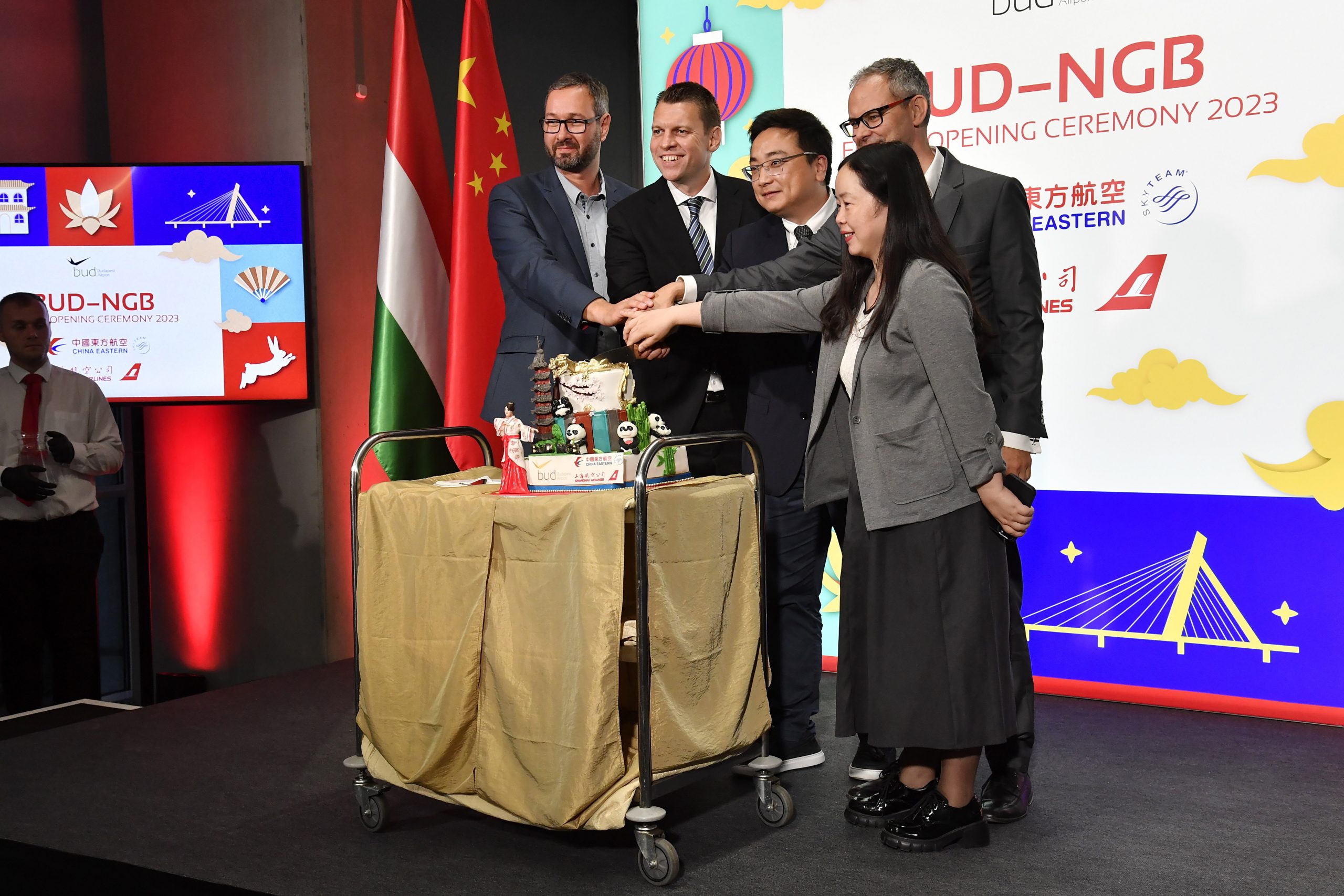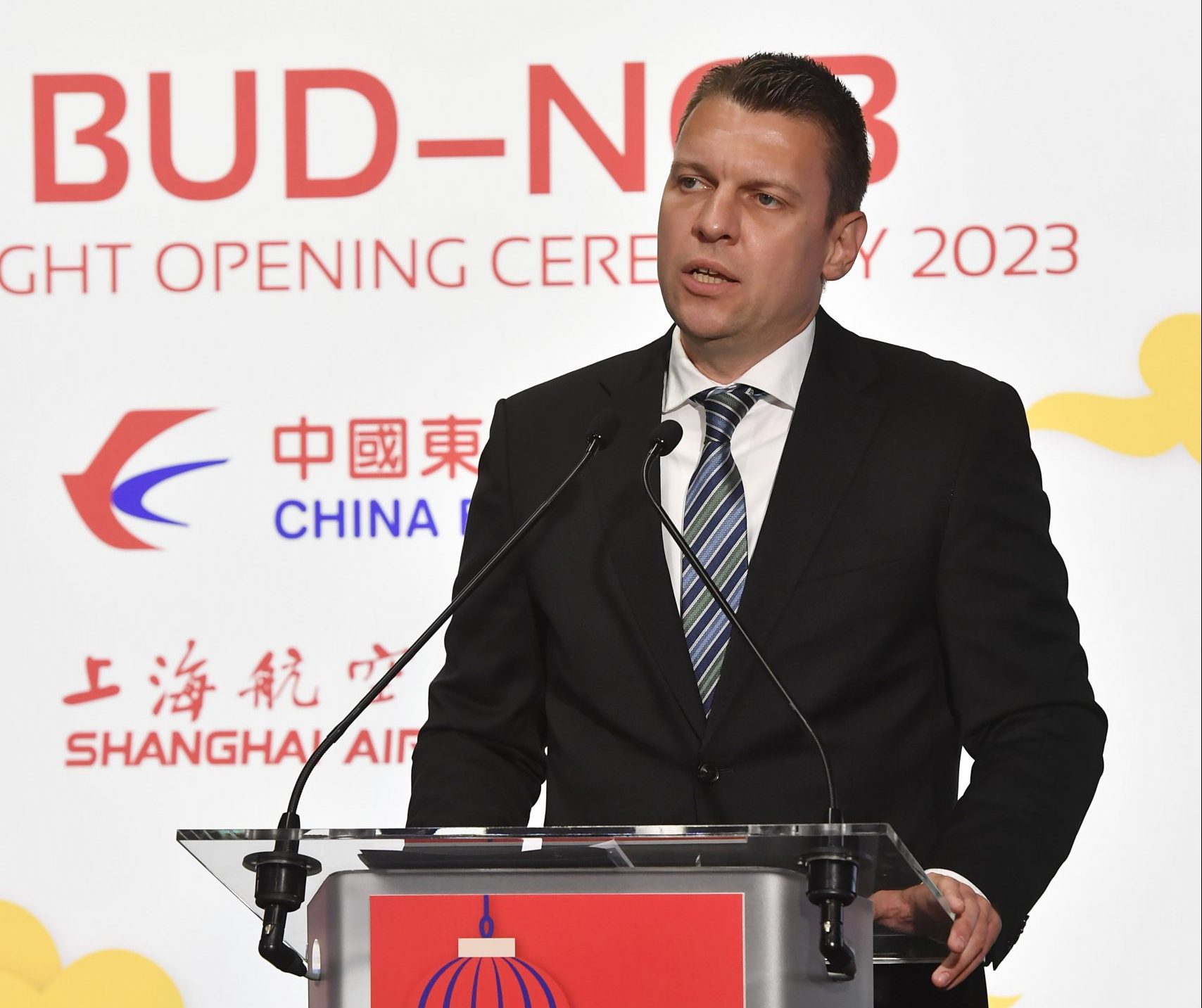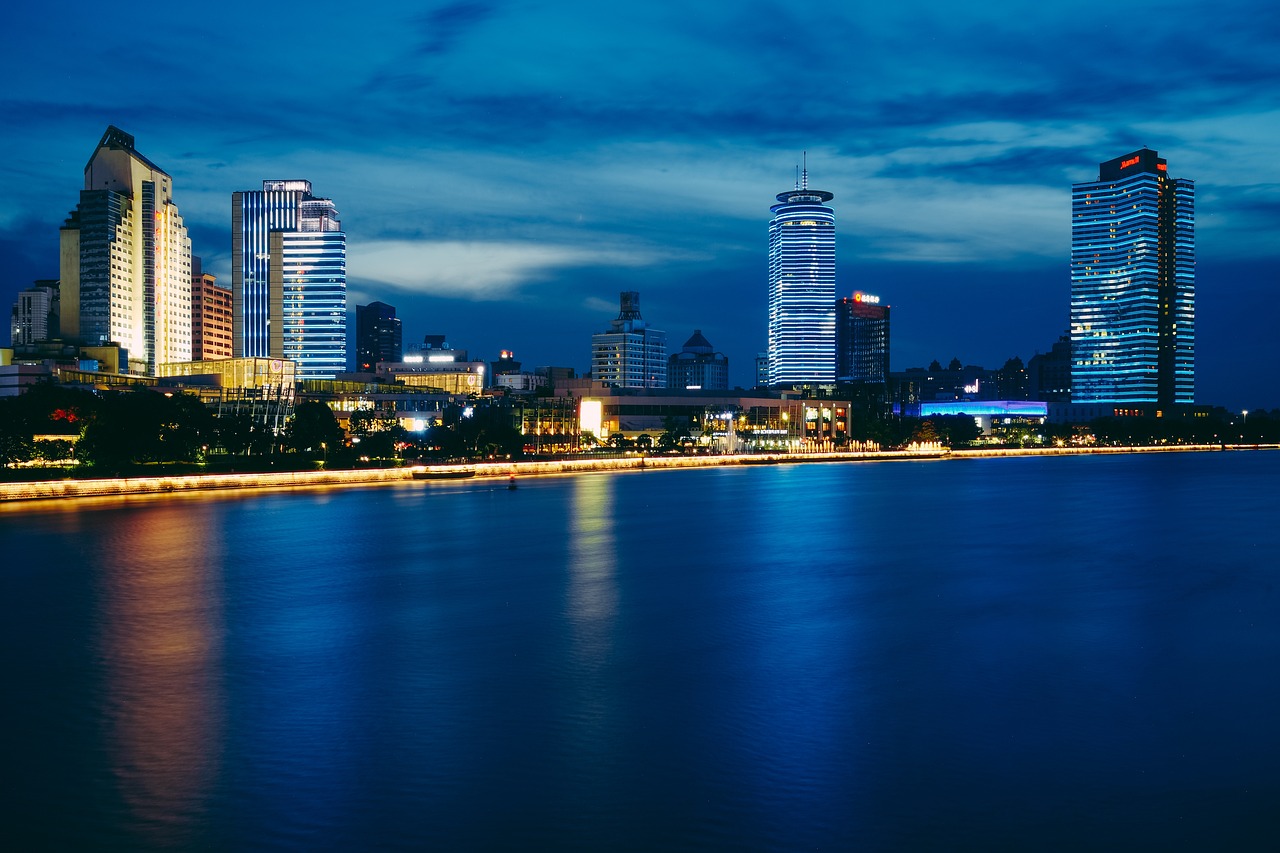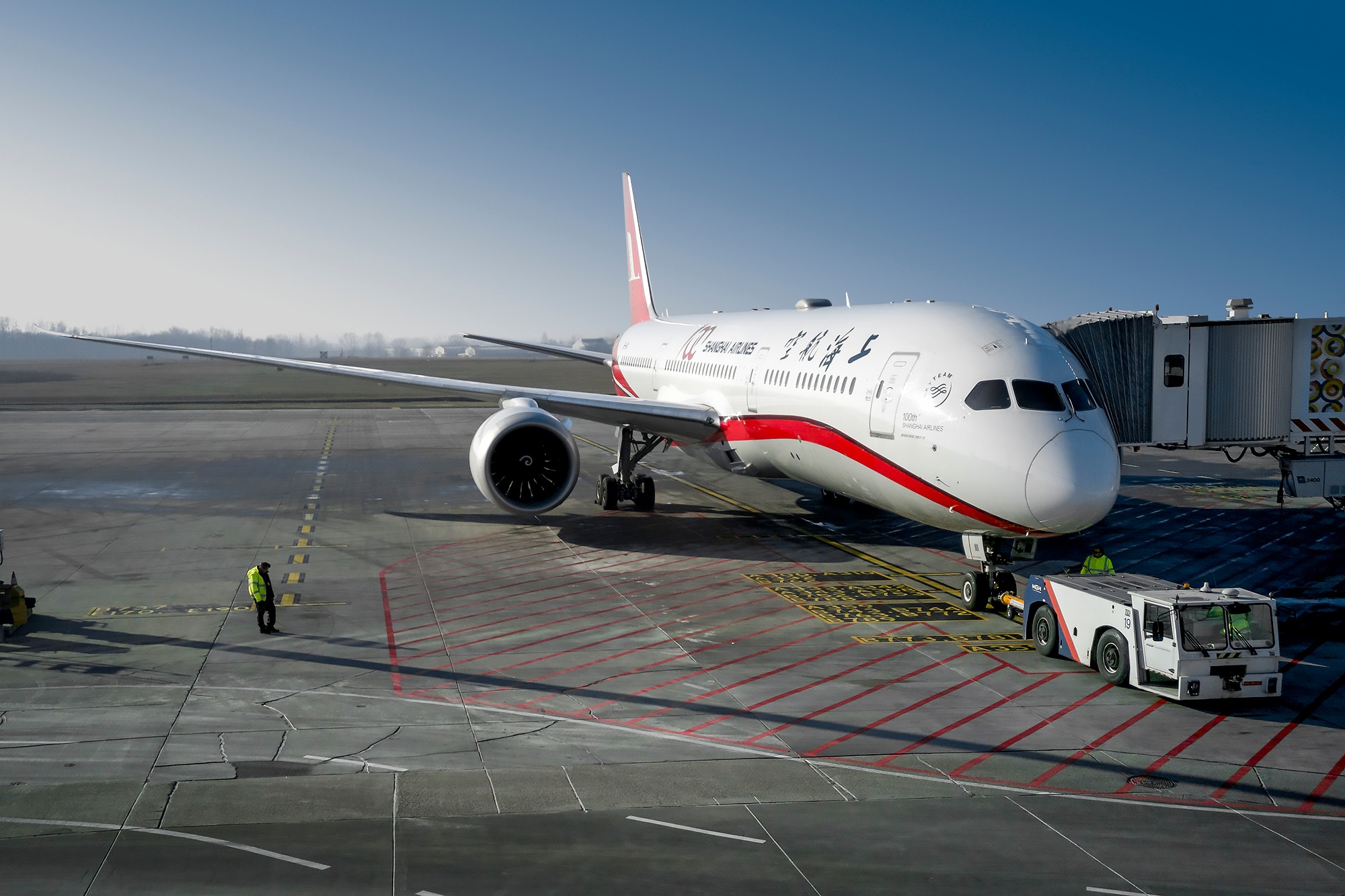The announcement of the new Shanghai Airlines route between Ningbo and Budapest is of even greater significance than usual in light of the war in the neighboring country, said Tamás Menczer, State Secretary for Bilateral Relations of the Ministry of Foreign Affairs and Trade, at a ceremony welcoming the launch of the flight route at Liszt Ferenc International Airport on Monday – according to information received by the editorial office from the Ministry of Foreign Affairs and Trade.
The politician recalled that for 15 months now, Hungary has been in the grip of a devastating war in its neighborhood, and unfortunately, in the transatlantic world, the pro-war forces are in the majority. But it is also clear that globally, the pro-peace forces are more predominant and the Hungarian government is also among those who want peace. He added that
China has a huge role to play in amplifying the pro-peace voice.
China also wants peace, and Hungary supports the Chinese peace plan on the war in Ukraine. Tamás Menczer said that the war in the neighborhood is causing an economic and energy crisis in Europe and worldwide. The separation of the European and Russian economies with harmful sanctions has taken place, which is equivalent to a lung shot to the European economy.
We are also seeing efforts to separate the European and Chinese economies, which would be tantamount to another beheading after the lung shot, the State Secretary added, emphasizing that the Hungarian government does not support this. The cabinet does not want the European Union and NATO to become an anti-China bloc. Instead of systemic competition, the Hungarian government supports strategic cooperation with China, and instead of bloc-building, the Hungarian government supports connectivity.

Photo: MTI/Lakatos Péter
Menczer pointed out that the appreciation of China and the East is demonstrated by the fact that while 15 years ago 80 percent of global investments were financed by Western capital and 20 percent by Eastern capital, today this ratio has been reversed, with 70 percent of global investments financed by Eastern capital and 30 percent by Western capital.
In 2010, China accounted for nine percent of the world GDP and the European Union for 22 percent, but this has also changed, with
China producing 18 percent of the world GDP and the EU 17 percent.
Last year, the EU and China had a trade turnover of €860 billion, a third of which was linked to Germany, the State Secretary said. He noted that this shows how political communication is divorced from reality. Menczer underlined that Hungary is proud that in 2017, Hungarian-Chinese relations reached the highest level, the level of a comprehensive strategic partnership.
Today, Hungary is the number one destination for Chinese investors in Central and Eastern Europe,
with total Chinese investments in Hungary reaching USD 8 billion, and China was the largest source of investment in Hungary in 2020 and 2023. As an indication of the trade partnership between the two countries, China was Hungary’s number one trading partner outside Europe in 2022. Last year, trade in goods between the two countries increased by six percent compared to 2021, and between 2011 and 2019 – the period before the coronavirus epidemic – the number of Chinese tourists arriving in Hungary almost quintupled.

MTI/Lakatos Péter
It is hoped that the situation will normalize after the pandemic, with more Chinese tourists arriving in Hungary. There is huge competition for Chinese tourists, who are among the biggest spenders in the world, helping the country’s tourism sector and economy to grow. Menczer said that
Shanghai Airlines will operate two flights a week from Ningbo to Budapest,
making four major Chinese cities – Beijing, Chongqing, Shanghai and Ningbo – directly accessible from Budapest, and from July, 10 passenger flights a week will connect Budapest and China. This will bring them close to the pre-Covid regional record of 13 flights per week, he added. The importance of the link is also reflected in the fact that Ningbo has a population of 10 million and is located in one of China’s richest provinces, the 65 million-strong Zhejiang province. The port city is also known for its exports of electronics, textiles, and industrial machinery, said Menczer.

Ningbo summer night, Pixabay.com
Wu Dan, First Secretary for Economic and Commercial Affairs of the Embassy of the People’s Republic of China in Budapest, said
the establishment of air links between Hungary and China is an important achievement of economic cooperation.
Szabolcs Juhász, Director of Tourism of the Hungarian Tourism Agency, said that the increasing number of Chinese tourists arriving in Hungary through direct Chinese flights was good news for the sector. Qiu Jie, Deputy General Manager of China Eastern Airlines, said at the ceremony that the Hungarian market is important for them in the European region.

Photo: Facebook/Gyula Horváth
Balázs Bogáts, Deputy Chief Commercial Officer of Budapest Airport, stressed that they are working to increase the number of air connections between Budapest and China’s major cities and to continue to have the most Chinese flights in the region arriving in the Hungarian capital.
Via MFA; Featured image: MTI/Lakatos Péter